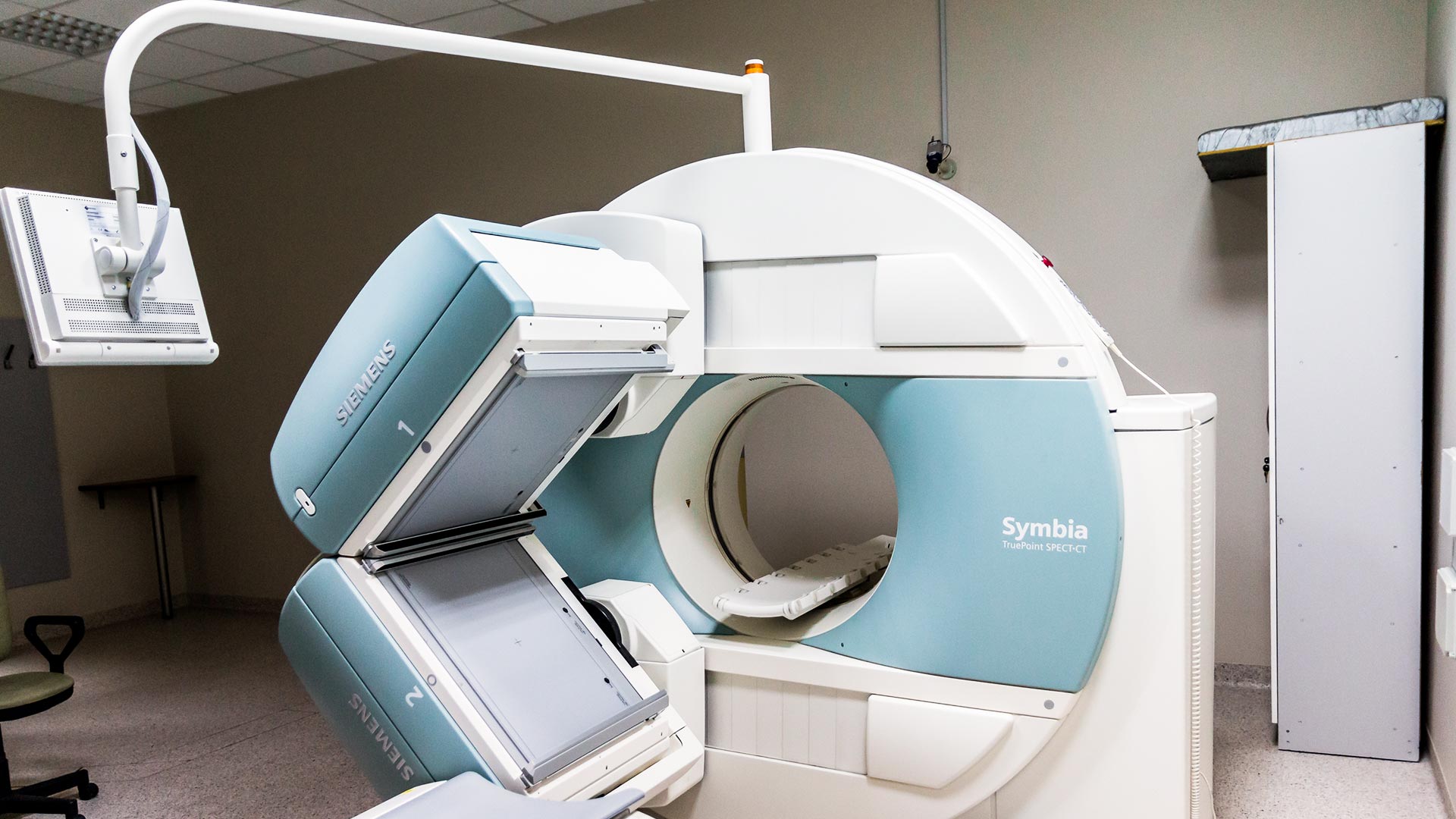 A magnetic resonance imaging (MRI) machine.
A magnetic resonance imaging (MRI) machine.
University of Arizona researchers are using a $2 million grant to make MRIs more efficient. The technology will provide for higher-resolution scans, allowing for earlier diagnoses.
The new MRI technology will not only produce richer images with less artifact, or blurriness, but will also reduce scan times significantly.
Scan times will go from a range of 40 to 60 minutes down to 15 minutes or less.
Nan-kuei Chen is an MRI scientist and associate professor in the department of biomedical engineering. He says some patients will really see the benefit.
 VIEW LARGER Nan-kuei Chen
VIEW LARGER Nan-kuei Chen "Patients with Parkinson's disease — they may have tremors. It's very hard for them to stay still. And if they can not stay still, we will have a lot of artifact. And the pediatric population, kids, obviously couldn't stay in an MRI for a long period of time even with giving a lot of a candy."
Chen likens current MRIs to taking a picture with your smartphone at night.
"If we want to take a good picture at night — and you take a picture like this: click click click — you can notice that there is some unused time in between. The other approach to increase the exposure time —ZZZZZ — the efficiency is higher because there is less unused time," he says.
But that approach causes blurriness. Chen says new techniques will reduce the blurriness caused by the patient moving. It will also incorporate multiple types of MRI data, such as information on iron levels, gray matter volume and white matter connectivity.
During the first phase of the five-year project, researchers will test the new methods on healthy patients and then verify the accuracy of their results. They will then compare data from patients at high risk for Parkinson's and those in the early and late stages of the disease.

By submitting your comments, you hereby give AZPM the right to post your comments and potentially use them in any other form of media operated by this institution.